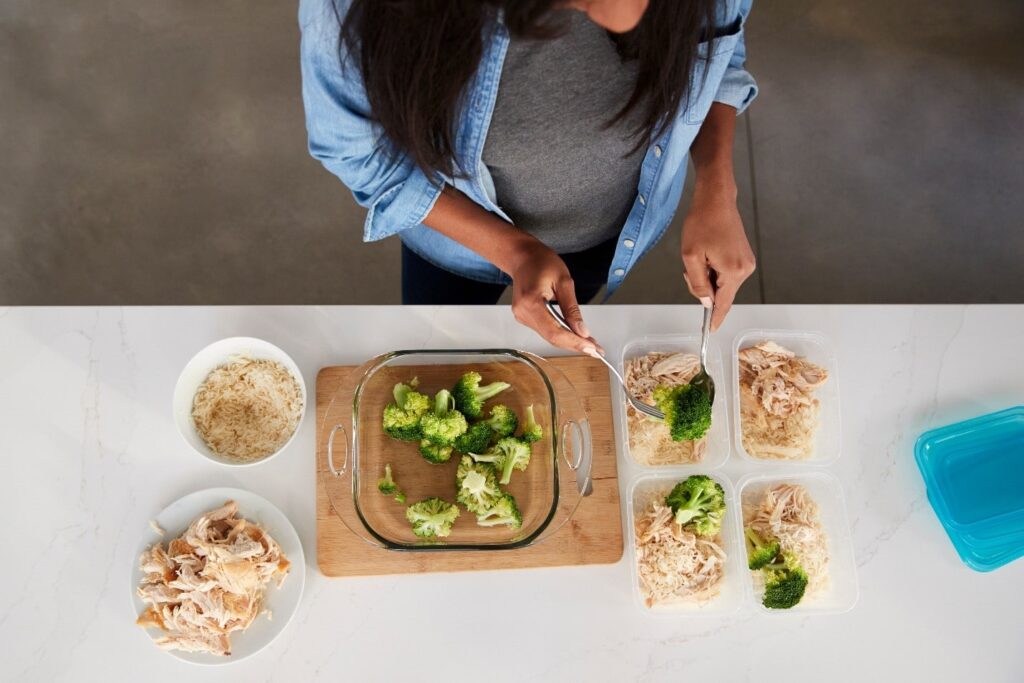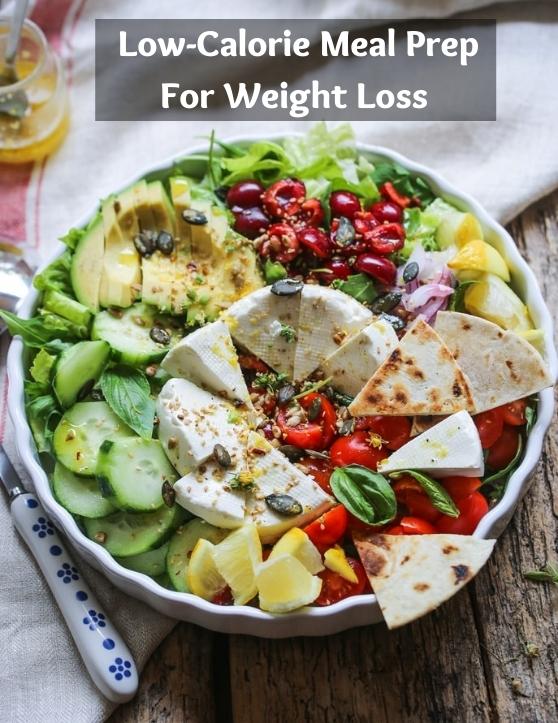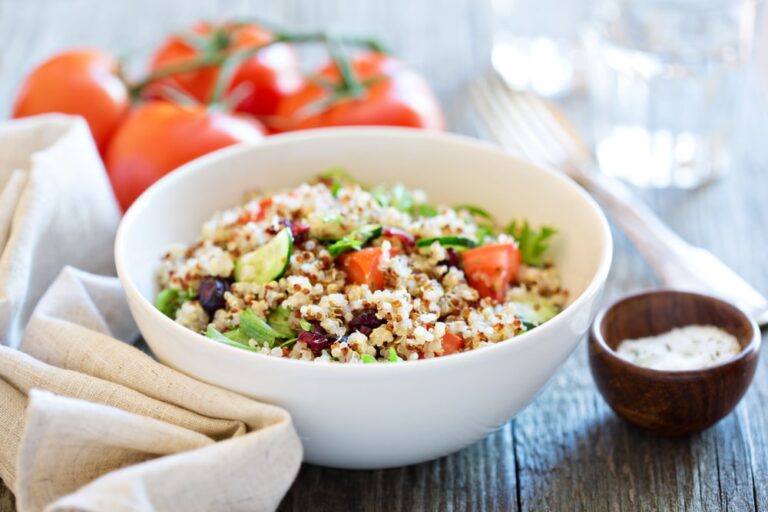Low-calorie Meal Prep for Weight Loss – 6 Expert Tips
Low-calorie meal prep makes losing weight more mindful and purposeful. It is often having the forethought to recognize that when we don’t have a plan in mind for what we consume, we can easily fall into destructive nutritional habits. Not planning causes us to skip meals or grab something fast. Often, it works against the good habits that we are trying to establish.
Those who advocate meal preparation cite that it helps them shed pounds and remain on their diet. Additionally, they say it helped them save money and time. Done properly, it can be the largest factor in quickly losing weight and obtaining fitness objectives. However, it involves implementing the correct strategy to make meals that you will enjoy long term.
The challenge with meal prep is that most people tire of eating the same meals for a longer duration. So, they begin to skip them or look for other alternatives. Unfortunately, those other alternatives may not align with their overall goals of eating a healthy meal to lose weight.
Low-calorie meal prep should incorporate strategies for meal planning, including a variety of great, tasty recipes and flavor hacks that will prevent boredom.
How Do You Create Meal Prep?

Meal prepping doesn’t have to be time-consuming or challenging. The plan should be tailored to your schedule and skill level. Just as your diet is personal, so should your meal prep. Not everything will work for all people – some may not want chicken breast as part of their everyday healthy lunch and others might like to incorporate a bell pepper or a sweet potato as part of their favorite meal prep recipe. You may have to experiment to find a meal plan that works for you.
Meal prepping involves planning and preparing meals in advance while consciously controlling calories. It also considers proper nutrition to meet your dietary requirements. Meal prep can be composed of making a healthy lunch the previous night, batch cooking, or portioning out pre-cooked food.
Benefits
The benefits of meal prep Involve:
- Reduced time spent making meals
- Lower overall daily costs
- Decreased stress
- Successful dieting
Taking control of your diet and planning out your meals is the road to success.
It will prevent you from engaging in hunger-based decisions that can be a detriment to your diet. It also cuts down on what you spend when you eat out. This ends up saving you money. Research supports that meal planning provides better nutritional value and stimulates greater weight loss. It makes you, not your hunger, in charge of your diet and weight loss.
Meal preparation eliminates the stress of trying a healthier lifestyle. Cutting calories can cause you to think about food all the time. Being unaware of what your next meal should be can become overwhelming.
The lack of a meal plan can impact a person’s determination, making them more susceptible to making poorer choices. If it feels like a chore, a time-consuming endeavor, or you don’t feel like it, you can become prone to making decisions you may regret later.
6 Expert Tips for Low-calorie Weight Loss
Successfully dropping pounds involves calculating how many calories are needed to lose weight, tracking what you are consuming, and finding the best foods to initiate weight loss.
- Portion Control – This is important, especially for the first while you are on a diet. You will mentally want more food because you think that you need to eat more. A trick is to use a smaller plate, a food scale, or an app to limit your portions. To lose weight, your portions should be 50% veggies or fruit, 35% proteins, and 15% starch.
- Weigh Food – If you have been diligently consuming fewer calories and still haven’t lost weight, weighing your food will allow you to control the portions you’re consuming. Even if measuring spoons and cups are being used, they can be inaccurate because they aren’t exact. This is especially important if you are using dressing, cooking oils, and high-fat toppings.
- Make Wise Nutritional Decisions – Technically, you can consume anything on a diet and remain in your calorie count. However, are you satisfied at the end of your meal? Consider incorporating fruits, veggies – like salad greens or cauliflower – fiber, and whole grains to keep you fuller. They are low-calorie alternatives that will prevent you from snacking or becoming hungry.
- Address Your Weaknesses First – What areas require the most attention when it comes to weight loss? Do you snack mindlessly in front of the television set, or maybe eat out for supper? These are the areas you want to address first with food prep.
- Set a Day Aside for Meal Preparation – It should be a day where you are relaxed and have time. This will make it more enjoyable and less of a chore. If it feels like less of a chore, then you’ll have a higher likelihood of sticking to the program.
- Find Containers with Reliable Proportions – You will be using these all week, and they’ll need to be on hand. They will help you proportion your healthy recipes better and keep them fresh. They will also enable you to safely store them. Also, you can use travel coolers if you need to.
Further tips involve taking your budget into consideration. While eating healthier is exciting, if you aren’t mindful, you can notice that it gets expensive. This is where people can drop off. It simply doesn’t feel feasible or sustainable to them, so they give up.
Experts suggest spending 10% of your take-home salary on food. You can mix and match foods to receive more for your money. Look for ingredients that have versatility and can be used for multiple dishes.
You can incorporate sale items and stock up on items that are non-perishable. Expensive foods can be exchanged for those that are less pricey but similar. Also, be sure to buy in proper portion sizes to eliminate waste.
Apps that send you a reminder about logging your meals can help. Also, the healthy recipes that are available with them can help in creating low-calorie meals without the extra effort. Implementing them will be easier as opposed to finding them on your own.
Low-calorie meal prep doesn’t have to be a chore if done properly. It just involves making a more conscious effort in planning what you consume in terms of foods. Yet, you will quickly see the rewards in how much weight is lost and how sustainable it is. This will increase the likelihood of success.








